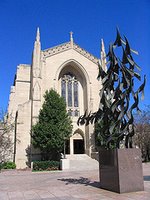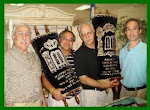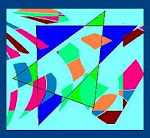
A community gathering was held last Sunday, January 7th, at KKBE, honoring life & work of Dr. Martin Luther King, Jr.
Sponsored by the YWCA and the Charleston Jewish Community Relations Council, the program included local clergy and community leaders, and musical selections by the Choir of Morris Brown AME Church & the Jewish Choral Society.
The keynote address was given by Anita Zucker, Director of Community Relations for the Intertech group. The program emphasized the bonds between the Jewish and African-American communities, their shared reflections on the vision and leadership of Dr King, and their common desire to fulfill the promises of a just society for all.
Dr King favored non-violent means in addressing matters of injustice, only when necessary, asserting that the use of civil disobedience was justified.
For further reflection on this from a biblical perspective, the chapter of Exodus dealing with Moses has particular relevance. The Chief Rabbi of the United Kingdom, Rabbi Sir Jonathan Sacks, in a lesson available online at http://www.chiefrabbi.org, discusses an act of "civil disobience" in response to Pharoah's decree to the midwives Shifra and Puah that all Israelite male newborns be killed. In particular, he notes, the Torah is ambiguous in describing who the midwives were ( ie, were they Egyptian, Israelite or of some other nation), for the reason that . . . "their particular form of moral courage transcends nationality and race".
The reading (parsha) of Shemot, referred to above, goes on to descibe Moses' first three recorded actions, based on which Moses merited to lead the Israelites to freedom. First, he saves an Israelite slave and kills an Egyptian taskmaster. Next, he intervenes in a dispute between two Israelites, and in short order, having fled for fear of his life from Egypt, he intervenes to support the daughters of Midian from their unjust treatment at the hands of some shepherds. These actions symbolize the underpinnings of Jewish leadership: to protect the Jewish people from oppression arising externally, to make peace when there are inter-Jewish conflicts, and to address and mitigate injustices in society in general.
To see more material on these themes, you may go to the following links:
A parashat hashavua from B'nei Jeshurun Congregation,
from which
"Next we come to Moses who has now grown up. He goes out of the palace to see his brethren and to witness their labors. Moses has not forgotten his Hebrew roots. He is drawn to seeing their plight. When he sees a Hebrew slave being beaten, he acts to strike the taskmaster. Rabbinic tradition tells us that this act was one of three, that illustrate Moses' inability to tolerate injustice and thus made him a good candidate to lead the Israelites out of Egypt."
And: http://www.chabad.org/ - Moses: the birth of a leader.
_____________________________
Acknowledgement: The photograph at top left shows the memorial to Dr King on the campus of Boston University: a flurry of doves, symbolizing peace, reaching to heaven. The photo was taken by Peter Wood.



No comments:
Post a Comment